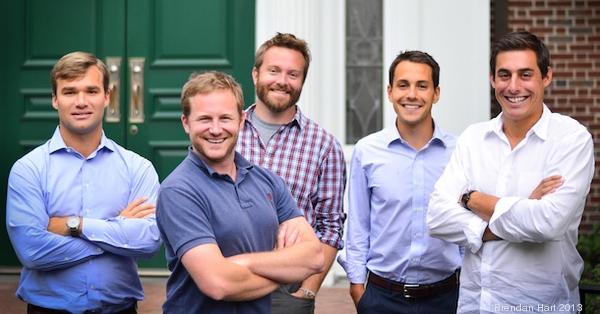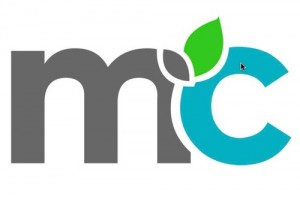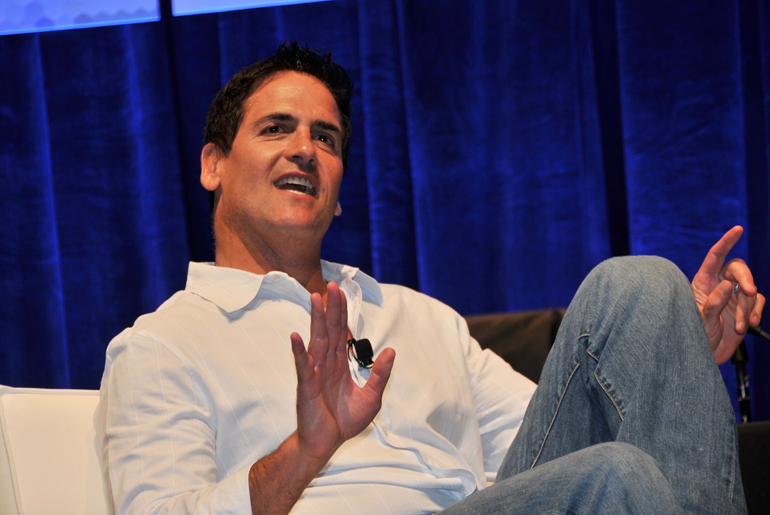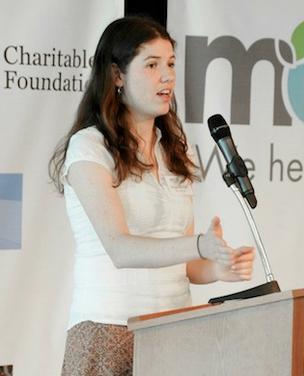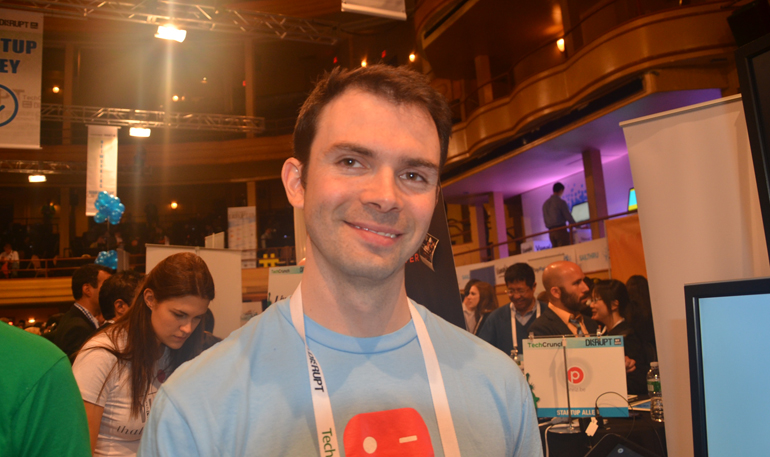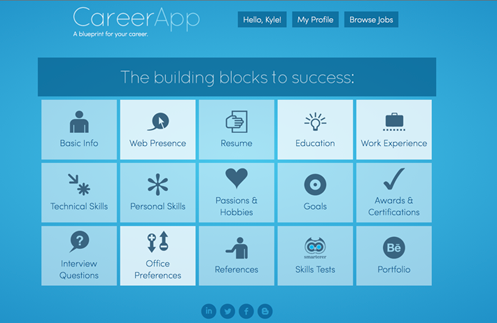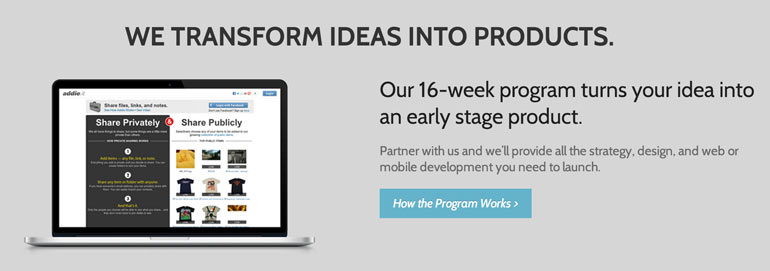
Accelerators are great. We cover a lot of startup accelerators from across the country and around the world here at Nibletz. Accelerators are great for companies that have a product. We’ve seen a handful of wireframes and ideas evolve out of an accelerator, but typically to get your “idea” into an accelerator, you also need a proven track record.
Startup Weekend is a great place to flush out an idea and start working on a prototype. But even with over 700 events worldwide, some people can’t get to Startup Weekend. Others want to develop their idea a little more intimately and without presenting it in front of a group of strangers. For those idea-preneurs there’s Firefield.
The team behind FireField started as a company building internal web applications. They quickly realized through this process that there were a lot of other people in the same boat that may not have the access to the same resources they had. That is, people with great ideas and nowhere to go.
Firefield pivoted to an external facing company that wanted to help people with ideas become real startups. Now, they offer an online accelerator with access to curriculum, mentors, designers, developers, and people who’ve actually been through the startup process.
The program lasts 16 weeks and has a rolling start, meaning you can sync up with the Firefield team and program when you’re ready.
Traditional accelerators ask for a huge commitment from founders. Most founders who get into an accelerator think about one thing and that is getting into the program. Once they’re accepted they worry about the little details like taking a sabbatical from their day jobs or quitting altogether. They also take a risk in relocating. Some accelerators have temporary housing worked out, but other accelerators require teams to rent a place to live. Since most rentals are annual so you’re moving to a strange city and getting into an year long lease.
Accelerators are awesome, but there are plenty of risks.
Since there’s not as much risk with an online accelerator, Firefield asks for each startup to invest $5,000 into the program so they have some “skin in the game.” That may seem expensive, but without an accelerator like this you may end up paying tens of thousands of dollars in college courses.
The model seems to be working for Adam McGowan and his cofounders at Firefield.
Here’s a quick interview with McGowan.
What is Firefield?
Firefield offers a 16-week program that ignites ideas into early stage products. We partner with entrepreneurs, providing them with the strategy, design, and web or mobile development needed to launch. We do this for partners with funding, but we also accept equity from select entrepreneurs. By bringing a co-founder’s mentality, an ability to execute, and a proven track-record to our partners, we help build not just products, but successful businesses.
In layman’s terms, how does it work?
Entrepreneurs come to us with great ideas that they cannot build themselves for any of a number of reasons: no technical team, limited funding, lack of experience, etc. We then work with them for 16 weeks to design, develop, and deploy their web or mobile-based application. We become very involved in their business, acting like a co-founder, and providing help in every area we can. After 16 weeks, entrepreneurs exit the program with a minimum viable product they can share with users, demonstrate to potential investors, etc. Moreover, they remain part of the Firefield network that will support them through its technical, strategic, and financial connections in the startup ecosystem. Members can enter the program by purchasing our services or by applying to be accepted in exchange for equity in their business.
Who are the founders and what are their backgrounds?
Adam McGowan is the CEO and founder of Firefield. He is an entrepreneur at heart, but did an 8 year stint in finance working at an investment bank followed by an upstart hedge fund — a period when he evaluated hundreds of deals, scrutinized piles of business plans, pitched investors around the world, designed and built tools he needed, and helped put billions of dollars to work. He witnessed huge successes and failures first hand. Although unconventional — as an entrepreneurial training ground — that experience was second to none, and it taught Adam what he does well and what he should leave for others.
That experience highlighted problem solving, relationship building, analytical thinking, and collaborating with others as the key strengths that Adam is really passionate about. And while he’s pretty damn good at building cash-flow models too, he’s hoping to never have to do that again.
Finding the intersection of his skills and passions led Adam to conceive and build Firefield. Since its inception, it has allowed him to present at conferences of venture capitalists and web innovators, take on founding-team roles with multiple upstart ventures, manage the agile launch of many interactive projects, collaborate with dozens of entrepreneurs at various stages, and foster a great team of thinkers and do’ers.
In short, Adam loves creating great stuff and at Firefield, that’s happened in the form of valuable products, successful businesses, and lasting relationships.
Jeremy Sewell is Firefield’s Principal Collaborator. A writer and entrepreneur, Jeremy hails from Maine and has been working in New York City for the past 11 years, where he’s taken an unconventional job path with many pivots and resets. Despite having studied creative writing and theater in college, when he arrived in New York, Jeremy took a job as a medical office assistant at the Mount Sinai School of Medicine, working for a program that provided free treatment for World Trade Center responders.
Within 4 years, based on his strong writing and communication skills, marketing acumen, unique blend of creativity and organization, and ability to lead, Jeremy was named the Director of Marketing and Communications for the entire Mount Sinai Medical Center (at the age of 26), giving him the opportunity to lead a courageous team of writers and designers.
Jeremy then became obsessed with the web and user experience — moving into project and account management roles at a number of prominent New York City agencies including ID Society, Domani Studies, and True North, working with clients that included American Express, Sony, AT&T, Crown Royal, Disney, and Starwood.
Having produced hundreds of successful sites and projects, Jeremy brings a wealth of experience in online marketing, strategy, user experience design, community building, and interactive development to Firefield’s clients. His main focus is on getting things done, efficiently and intelligently. He believes in wireframes, but thinks most functional specs are a waste of time. He has found his groove with the agile approach he’s helped develop at Firefield.
Where are you based?
Adam is based in Boston and Jeremy is based in New York City. The remainder of our team works remotely across multiple continents.
How did you come up with the idea for FireField?
Firefield has evolved over time, originally starting as a venture that built its own internal web applications. Over time we realized that many other early stage companies had the same needs that we did when trying to launch products and businesses. More importantly, our skills and expertise would be really valuable to them. We tested the water and started working with one client. One turned into two, and so on. Now we’re rolling out a program to help dozens of startups.
What problem does FireField solve?
Startup teams get accepted into programs like TechStars only AFTER they build a great product. Investors get interested in new ventures only AFTER they start getting traction and usage in the market. But what about all those entrepreneurs with a great idea but no ability to build and launch it? In most cases these ventures stall, or more likely, fold. We want more of them to have an opportunity to succeed.
What’s your secret sauce?
Over the years, we’ve cultivated an agile team of designers and developers that can execute quickly, efficiently, and foresee issues and opportunities early on. We love putting this team to work on new projects. When we combined our team’s abilities with an entrepreneur’s vision and expertise we find so many things become possible.
Our secret sauce is that when these entrepreneurs finish our program, they actually have a real product to market, sell, launch, etc. Traditional accelerator programs give you some office space, access to mentors, and maybe some cash. After that, you’re on your own. Because we take a vested interest in entrepreneurs and actually build their product with them, we don’t speed up companies, we ignite them.
Why Now?
Too many great ideas are failing to get started because they lack the experience, technical expertise, funding, connections or all of the above to launch their product. It’s time more entrepreneurs start getting the opportunities they deserve.
Who are some of your mentors and business role models?
While he may not have been the easiest boss to work for, Steve Jobs had an incredible vision and ability to execute that inspires us. From a company point of view, we are big fans of the approach at 37 Signals, a development shop that lives and breathes the agile business and software model.
What’s next for FireField?
We are going to continue to work with entrepreneurs to launch more successful businesses. In the future, we also hope to provide a training ground for aspiring “hustlers” or “hackers” looking to launch or join an upstart venture.
Where can people find out more?
You can learn about us at our website firefield.com




